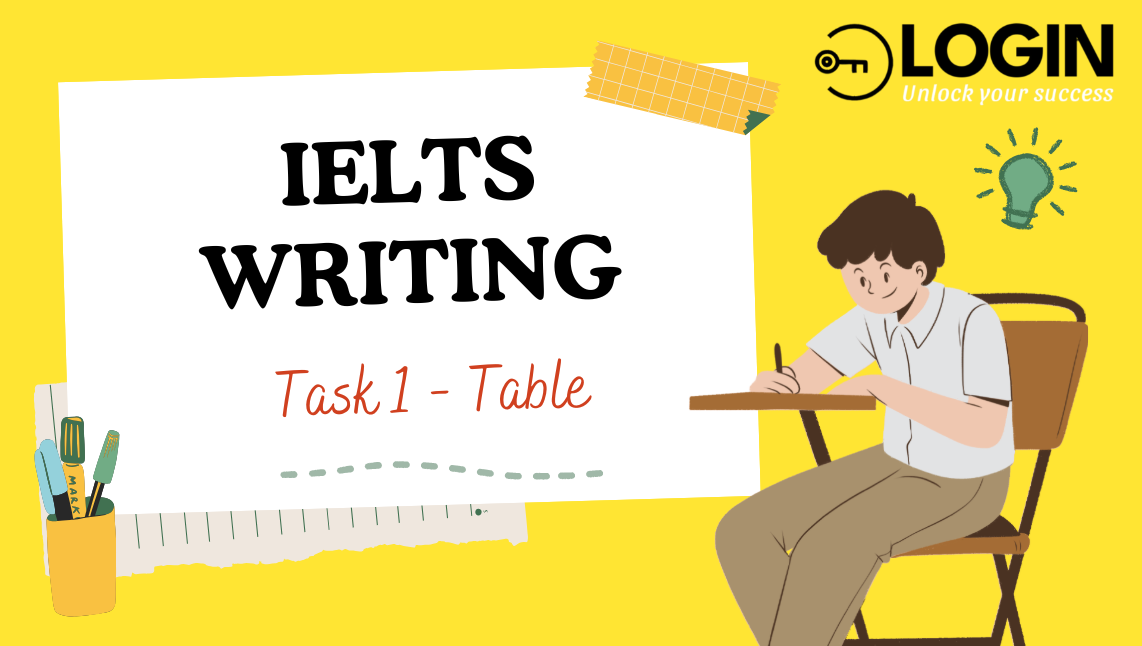"Describe a promise that you've made with someone" – một chủ đề tưởng chừng đơn giản nhưng lại chứa đựng chiều sâu cảm xúc trong phần IELTS Speaking Part 2. Một lời hứa có thể là cầu nối giữa hai con người, là minh chứng của niềm tin, tình cảm, hay thậm chí là động lực để ta cố gắng hoàn thiện bản thân. Đây là cơ hội tuyệt vời để bạn kể lại một kỷ niệm đáng nhớ, thể hiện sự trưởng thành, lòng chân thành và khả năng truyền tải cảm xúc một cách tinh tế. Để giúp bạn thể hiện thật nổi bật trong phần thi này, IELTS Login mang đến một hành trang đầy đủ: dàn ý mạch lạc, từ vựng “ăn điểm” và các cấu trúc câu linh hoạt, tự nhiên. Cùng khám phá để bài nói của bạn không chỉ đúng – mà còn thật sự chạm đến trái tim người nghe!
PART 2. Describe a promise that you've made with someone
You should say:
- What the promise was
- To whom you made it
- Whether it was easy or difficult to keep
And explain why you made it
One meaningful promise I made was to my younger sister. I promised her that no matter how busy I was, I would attend her high school graduation ceremony.
At that point in my life, I was working in a high-pressure job, and I barely had time for myself, let alone for family events. In fact, I had missed her middle school graduation and even a few birthdays, which she never complained about, but I could tell she was disappointed. So when she invited me to her graduation, I knew this time had to be different. I looked her in the eyes and gave her my word: I’d be there, no matter what.
However, keeping that promise turned out to be much harder than I expected. Just a week before the ceremony, my team at work was hit with a last-minute deadline for a big client. Everyone was staying late, and I was under a lot of pressure to deliver results. I considered telling her that I couldn’t make it, but every time I thought about that, I remembered how much it would hurt her. I had already let her down too many times.
In the end, I decided to push myself harder. I worked overtime for several days to finish my part early and then booked the earliest bus to her city. I arrived tired and sleep-deprived, but right on time. When I saw her walking across the stage and spotted me in the crowd, she gave me the biggest smile, and in that moment, all the stress and exhaustion disappeared.
I made that promise because I wanted to rebuild the bond between us — to prove to her, and maybe to myself as well, that no matter how busy life gets, family should always come first. It was a small act on the surface, but it carried a lot of meaning. And honestly, keeping that promise felt incredibly fulfilling.
gave your word (idiom): cam đoan, hứa chắc chắn
keeping that promise: giữ lời hứa
let someone down (phrasal V): làm ai đó thất vọng
rebuild the bond: xây dựng lại mối quan hệ
family should always come first: gia đình luôn phải là ưu tiên hàng đầu
fulfilling (ADJ): mang lại cảm giác trọn vẹn, thỏa mãn
FOLLOW-UP QUESTIONS
Is it ever okay to break a promise?
Yes, I think in some cases, it’s okay to break a promise especially when keeping it could lead to serious consequences, like harming someone’s health or putting them in a difficult situation. For example, if someone promised to attend an event but suddenly fell seriously ill, then breaking that promise would be understandable. That being said, I believe people shouldn’t use that as an excuse to break promises for minor or selfish reasons. If someone backs out just because it’s no longer convenient or they lost interest, it shows a lack of commitment and respect. In the end, if a promise truly can’t be kept, it’s important to be honest and explain the situation. Being transparent helps maintain trust and shows that you still value the relationship, even if things don’t go as planned.
break a promise: phá vỡ lời hứa
excuse (N): cái cớ
back out: rút lui, không giữ lời hứa
a lack of commitment and respect: thiếu cam kết và tôn trọng
transparent (ADJ): minh bạch, rõ ràng
value the relationship: trân trọng mối quan hệ
PART 3.
1. Why do some people fail to keep their promises?
There are quite a few reasons why people fail to keep their promises. Sometimes they agree to something too quickly without thinking it through, just to avoid disappointing someone in the moment. Other times, they may genuinely intend to keep the promise but later find themselves too busy or overwhelmed. And of course, there are people who simply don’t take promises seriously — they say things without meaning them, thinking it’s not a big deal if they break their word. Unfortunately, that kind of attitude can damage trust over time.
without thinking it through: không suy nghĩ thấu đáo
don’t take promises seriously: không xem trọng lời hứa
say things without meaning them: nói mà không thật lòng
it’s not a big deal: đó không phải vấn đề lớn
break their word: phá vỡ lời nói/ lời hứa
2. Do children keep their promises?
Children can definitely keep their promises, but whether they do or not really depends on their age, personality, and how they’ve been brought up. Young children under 7-8 often make promises without fully understanding their commitment, sometimes just to please others or mimic adults. As they grow older, with patient guidance from parents and teachers, children gradually understand the value of keeping promises and their connection to trust. Through real-life experiences and opportunities to practice, children develop a sense of responsibility for their promises. The question isn't whether children are capable of keeping promises, but how we guide and enable them to learn from experiences.
(be) brought up: được nuôi dạy
please others: làm người khác vui lòng
mimic (V): bắt chước
3. Do parents in VietNam make promises to their children?
Yes, I think Vietnamese parents make promises quite often, especially as a way to motivate or encourage their kids. For instance, parents might promise to purchase a bicycle if their child achieves academic excellence or reward good behavior with a weekend outing. Such tangible rewards often prove highly effective in motivating children. However, this practice also poses some risks if done carelessly. In many cases, parents - often due to hectic schedules or simple oversight - fail to honor their commitments. As a result, children may experience deep disappointment and gradually lose trust in parental words. So I think it's important for parents to be careful and only make promises they can keep.
tangible rewards: phần thưởng cụ thể, hữu hình
hectic schedules: lịch trình bận rộn
oversight (N): sơ suất
fail to honor: không giữ đúng lời hứa
only make promises they can keep: chỉ nên hứa khi chắc chắn có thể giữ lời
4. What kinds of promises do people often make?
People make a wide range of promises in daily life. Some are small and casual, like promising to return a call, arrive on time, or help someone with a task. Others are more serious, such as promises between partners to stay loyal, or commitments at work to meet a deadline or complete a project. There are also promises within families — like taking care of someone or always being there for them. Whether big or small, promises play a huge role in building and maintaining trust in relationships. At the end of the day, whether it's promising to water your neighbor's plants or vowing to be there for someone no matter what, these commitments are what make relationships work.
always being there for someone: luôn ở bên ai đó
meet a deadline: đáp ứng hạn chót
make relationships work: khiến mối quan hệ bền vững
Xem thêm:
IELTS Speaking Part 2+3: Describe a rule (in school or work) that you don’t like (Sample Answer)
IELTS Speaking Part 2+3: Describe a useful skill you learned from an older person (Sample Answer)
IELTS Speaking Part 2+3: Describe an ambition that you haven’t achieved (Sample Answer)
IELTS Speaking Part 1: Feeling Bored (Sample Answer)
_________________
Biên soạn bởi IELTS Login Academic Team
- Dịch đề và phân tích đáp án chi tiết IELTS Reading (Actual Test - Vol 1 Test 5)
- Giải đề IELTS Listening (Actual Test - Vol 1 Test 2)
- IELTS Speaking Part 2+3: Describe a sports person or team that you like (Sample Answer)
- Bài mẫu IELTS Writing Task 2 - Giải đề thi thật
- Bộ đề Forecast Speaking Quý 2 2025 (Full 3 Parts)
- Giải đề IELTS Listening (Actual Test - Vol 6 Test 6)
- IELTS Speaking Part 2+3: Describe a promise that you've made with someone (Sample Answer)
- Bài mẫu IELTS Writing Task 1 - Giải đề thi thật








